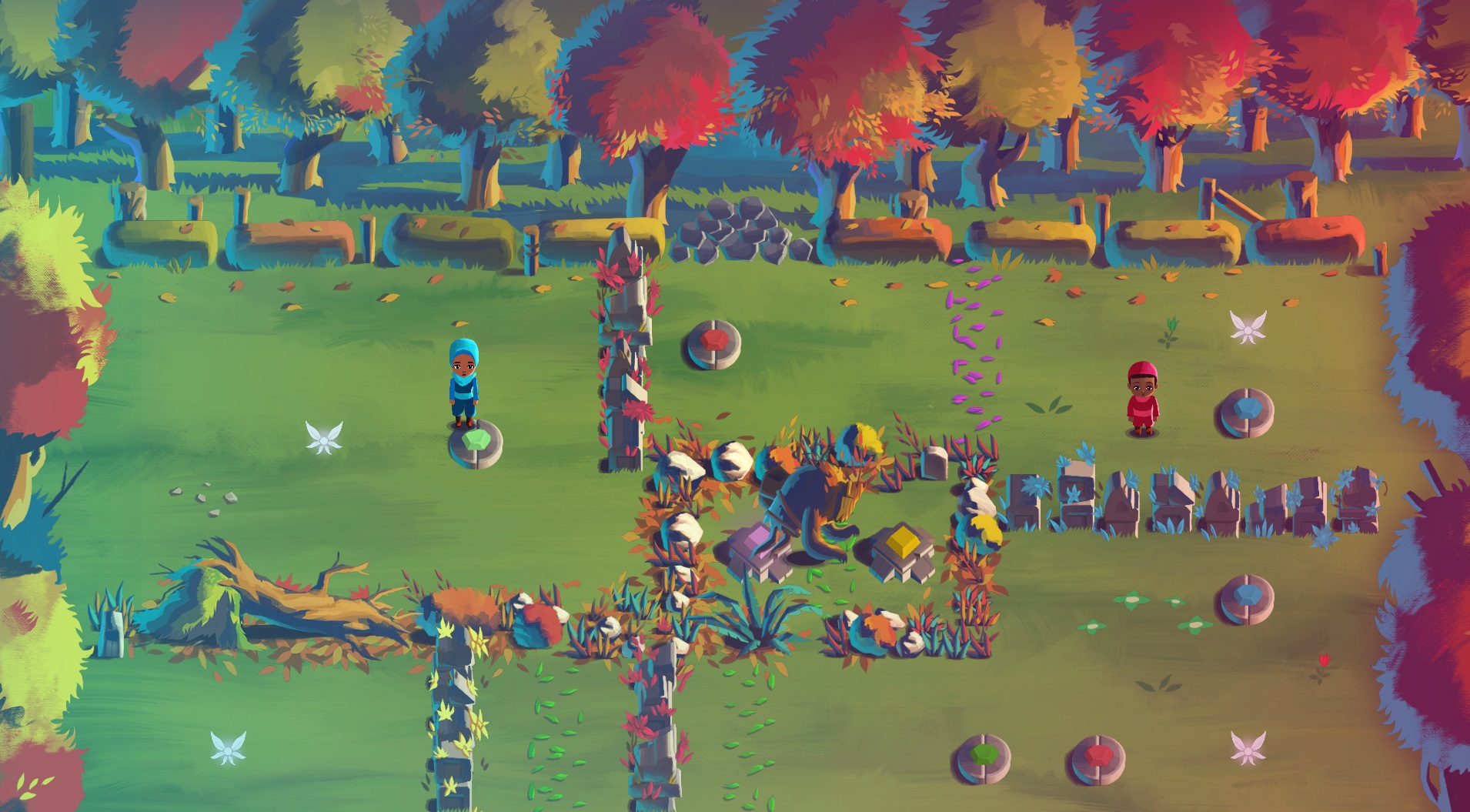Co-op gaming has definitely grown in the past few years but it's a two-edged sword. Just because a game includes co-op doesn't always mean it has co-op that was part of the design decisions from day one. This month in Indie-Ana Co-Op, lead designer/founder of Mount Olympus Games, Lyle Cox, shares his vision and design philosophy with us for Together: Amna & Saif.
The Co-Op Decision
It was shortly after the release of Jamestown I decided I wanted to make a co-op game. My friends and I had a blast clearing everything in that game. The way they removed all competitive elements from the game made it one of the most enjoyable social gaming experiences I ever had.
After a year and a half of working at nights prototyping different ideas including an over scoped 8 player networked asymmetrical-co-op bullet hell, I ended on the core idea that eventually became Together: Amna & Saif. Interdependent co-op. Co-op where you have to rely on and coordinate with each other, where progression is impossible without another person.
The Internal Struggle
Making progression impossible without two players means no single player mode. No single player mode means shrinking the potential players by a large amount. It also means you can't try the game by yourself very well before inviting a friend to play. This weighed on my mind for a long time before I decided for certain there would be no single player. If I was going to make a game intended for two people, I shouldn't go against that core theme of the game and do the opposite. I also didn't want the single player experience to be the first impression for a game designed to be co-op.
If there was single player it would be an inferior experience or a different game at best. I considered all the options, a bot, controlling both players, switching between players, and others. All of them more trouble than the problems no single player brought. If in order to maintain the integrity of the game less people were going to play it, then so be it. Those that do play it will have a better game as a result.

Social Good
I want to make a game that benefits society in some way. My hope is Together will foster a relationship building experience. Interdependence goes beyond having a conversation or doing something together. Interdependence is where people are mutually dependent on each other. It is a key quality in a rewarding and successful relationship and Together allows you to experience and practice it in a tangible way, even with people you normally wouldn't experience interdependence with.
Here are some of the decisions I made to foster bonding between players:
- If a level can be completed by one person I cut it
- Mechanics are designed for players to assist each other and/or coordinate with each other. This means players need to talk and rely on each other
- There are no abilities unique to each player. This removes barriers to empathy by making it easier to know what the other person can and can't do
- Feeling powerful inhibits empathy, so there are no weapons or special abilities
- There are some things that one player can do but the other cant, but those are determined by the environment, not the character. This makes it so you can easily switch places if you are stuck or a child wants to do a specific task.
- There are some puzzles where doing what seems best for yourself will result in failure if not taken within the context of the needs of your partner. My hope is that people will be more thoughtful of each other as a result.
- There are sections of the game where after a series of coordinated moves one of you is racing against time to grab an objective while the other supports. You end up both thinking the same things and end with a cathartic yes! This is where high fives happen most often
